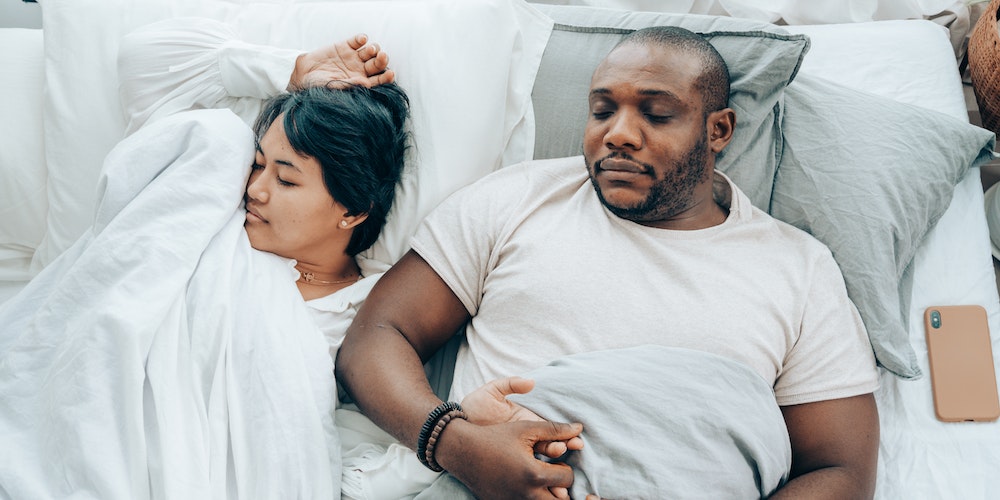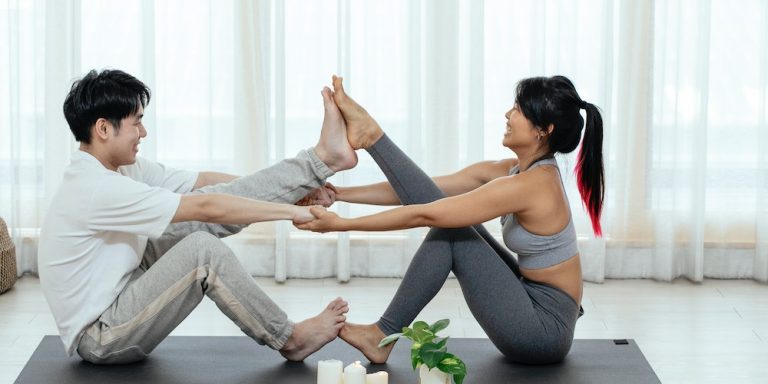
In this article, we discuss the importance of self-care in relationships and how it can benefit both yourself and your partner.
Introduction
In any relationship, whether it’s romantic, familial, or friendship, it’s essential to prioritize self-care. Self-care refers to the intentional actions we take to nurture our physical, emotional, and mental well-being.
When we take care of ourselves, we are better equipped to support and nurture our relationships.
This article explores the significance of self-care in relationships, emphasizing the importance of caring for yourself and your partner.
The Importance of Self-Care in Relationships: Taking Care of Yourself and Your Partner

Self-care is often regarded as an individual practice, but it plays a crucial role in the health and success of relationships.
When individuals prioritize their well-being, they are more capable of building and maintaining strong, fulfilling connections with their partners.
Here, we delve into why self-care matters in relationships and how it benefits both individuals and the partnership as a whole.
Why is self-care important in relationships?

Here are some reasons why self-care is important in any relationship.
Enhanced emotional well-being
Taking care of yourself emotionally is vital for the health of any relationship. When you prioritize self-care, you are better equipped to manage stress, regulate your emotions, and communicate effectively.
By understanding your own emotional needs, you can express them to your partner, fostering a more open and honest connection.
Regular self-care activities like journaling, meditation, or seeking therapy can provide the emotional support needed for a thriving relationship.
Improved physical health
Physical well-being is closely intertwined with relationship satisfaction. Engaging in regular exercise, eating nutritious meals, and getting enough sleep can significantly impact your mood and energy levels, positively influencing your interactions with your partner.
When you feel good physically, you are more likely to engage in activities together, creating shared experiences and deepening your bond.
Better stress management
Stress is an inevitable part of life, but how we manage it can make a significant difference in our relationships.
Self-care practices such as engaging in hobbies, spending time outdoors, or practicing relaxation techniques can help reduce stress levels.
By managing your own stress effectively, you create a calmer and more harmonious environment for both yourself and your partner.
Increased self-esteem
Nurturing a healthy sense of self-esteem is crucial for relationship dynamics. When you prioritize self-care, you demonstrate self-love and self-respect, which positively impacts how you perceive and interact with your partner.
Engaging in activities that make you feel confident and fulfilled can lead to a more positive self-image and a greater capacity to love and support your partner.
Avoiding relationship burnout
Neglecting self-care can lead to relationship burnout, where one or both partners feel emotionally drained and overwhelmed.
It’s essential to set boundaries and allocate time for self-care activities that replenish your energy and rejuvenate your spirit.
By taking regular breaks and engaging in self-care, you can avoid reaching a point of exhaustion, ensuring that you have the emotional resources to invest in your relationship.
Strengthening communication and connection
Engaging in self-care activities allows you to cultivate self-awareness, enabling you to communicate your needs and desires more effectively to your partner.
When both individuals in a relationship practice self-care, they develop a deeper understanding of themselves and each other.
This understanding enhances empathy, promotes healthy communication, and strengthens the emotional connection between partners.
The Role of Communication in Self-Care within Relationships

Communication plays a crucial role in the practice of self-care within relationships. Open and honest communication allows partners to express their needs, boundaries, and desires, creating a foundation of understanding and support.
Here, we explore the significance of communication in the context of self-care within relationships.
Expressing individual needs
Effective communication enables partners to express their individual needs and desires. By openly discussing what makes them feel fulfilled and supported, individuals can engage in self-care activities that cater to their specific requirements.
This encourages a sense of autonomy and empowerment within the relationship, fostering personal growth and satisfaction.
Setting boundaries
Establishing and respecting boundaries is an essential aspect of self-care in relationships. Through communication, partners can discuss and define their boundaries, ensuring that each person’s emotional, physical, and mental well-being is respected.
This allows for a healthier and more balanced dynamic within the relationship.
Sharing self-care practices
Communication provides an opportunity for partners to share their self-care practices with each other.
By discussing activities they find rejuvenating or beneficial, partners can explore new self-care options together and potentially find shared activities that enhance their bond.
This not only strengthens the connection but also promotes mutual support and understanding.
Checking in on emotional well-being
Regular communication allows partners to check in on each other’s emotional well-being. By expressing care and concern, partners can offer support during challenging times and celebrate successes during moments of joy.
This kind of emotional support contributes to a nurturing and resilient relationship.
Resolving conflicts effectively
Conflict is a natural part of any relationship, but effective communication can help partners navigate conflicts in a healthy and constructive manner.
By using active listening, expressing emotions without judgment, and seeking mutually beneficial solutions, partners can maintain trust and understanding even during challenging conversations.
Celebrating achievements and growth
Communication provides a platform for partners to acknowledge and celebrate each other’s achievements and personal growth.
By openly expressing pride and admiration for one another, partners can reinforce positive self-esteem and encourage further self-care practices.
The Importance of Alone Time and Quality Time in Relationships

Balancing alone time and quality time is crucial in maintaining a healthy and fulfilling relationship. While spending quality time together strengthens the bond, alone time allows individuals to recharge and engage in self-care activities.
Here, we delve into the significance of both aspects and how they contribute to relationship well-being.
Alone time for self-reflection
Alone time provides individuals with an opportunity for self-reflection and introspection. It allows them to connect with their own thoughts, emotions, and needs.
This self-reflection is essential for personal growth and self-awareness, which ultimately enhances the individual’s contribution to the relationship.
Engaging in personal hobbies and interests
Allocating time for personal hobbies and interests is crucial for self-care within relationships. It allows individuals to pursue activities they enjoy and feel passionate about, promoting a sense of fulfillment and satisfaction.
By supporting each other’s individual pursuits, partners contribute to each other’s overall well-being and happiness.
Quality time for connection and bonding
Quality time is essential for building and maintaining emotional connection and intimacy within relationships.
It involves engaging in activities together, having meaningful conversations, and actively listening to each other.
Quality time strengthens the bond between partners and fosters a sense of togetherness and support.
Balancing alone time and quality time
Striking a balance between alone time and quality time is crucial for relationship harmony. It is important to respect and honor each other’s need for alone time while also making intentional efforts to spend quality time together.
This balance allows for individual growth and self-care while nurturing the connection within the relationship.
Effective communication about alone time and quality time
Open and effective communication is key when discussing alone time and quality time within relationships.
Partners should express their needs and expectations regarding alone time and quality time, ensuring that both individuals feel heard and respected.
By understanding each other’s preferences and finding compromises, partners can create a healthy balance that supports both individual and relational needs.
Incorporating these elements of self-care, communication, alone time, and quality time can contribute to a strong and resilient relationship.
Prioritizing self-care and understanding the importance of taking care of oneself and one’s partner are foundational for relationship success and satisfaction.
Conclusion
In conclusion, self-care is not only crucial for personal well-being but also plays a vital role in maintaining healthy and fulfilling relationships. Prioritizing self-care allows individuals to better navigate the challenges of life, manage stress, and communicate effectively with their partners. By taking care of yourself, you become better equipped to care for your partner and foster a strong and lasting connection. Remember, self-care is not selfish—it is a necessary investment in both yourself and your relationship.
Frequently Asked Questions
1. What are some practical self-care activities for couples?
Couples can engage in various self-care activities together, such as taking walks, cooking healthy meals together, practicing mindfulness exercises, or having regular date nights. It’s important to find activities that both partners enjoy and that foster a sense of relaxation and connection.
2. How can self-care impact the longevity of a relationship?
Prioritizing self-care can significantly impact the longevity of a relationship by fostering individual growth and overall relationship satisfaction. When both partners are committed to their own well-being, they bring their best selves to the relationship, creating a solid foundation for long-term success.
3. Can self-care practices benefit relationships during challenging times?
Absolutely. Engaging in self-care practices during challenging times provides individuals with the necessary support and coping mechanisms to navigate difficult situations. By taking care of themselves, individuals can better support their partners and work together to overcome obstacles.
4. Should self-care be an individual or shared responsibility?
Self-care is primarily an individual responsibility, as each person has unique needs and preferences. However, both partners should encourage and support each other in their self-care journeys. By fostering a culture of self-care within the relationship, individuals can grow together and create a supportive environment.
5. How can self-care improve intimacy in a relationship?
Self-care activities that promote self-love and self-acceptance can lead to improved intimacy within a relationship. When individuals feel confident and secure in themselves, they can be more vulnerable and open with their partners, deepening emotional and physical intimacy.
6. What if my partner doesn’t prioritize self-care?
If your partner doesn’t prioritize self-care, it’s essential to communicate your needs and concerns openly and honestly. Encourage them to explore self-care activities that align with their interests and values. Leading by example and demonstrating the positive effects of self-care in your own life can also inspire your partner to prioritize their well-being.



